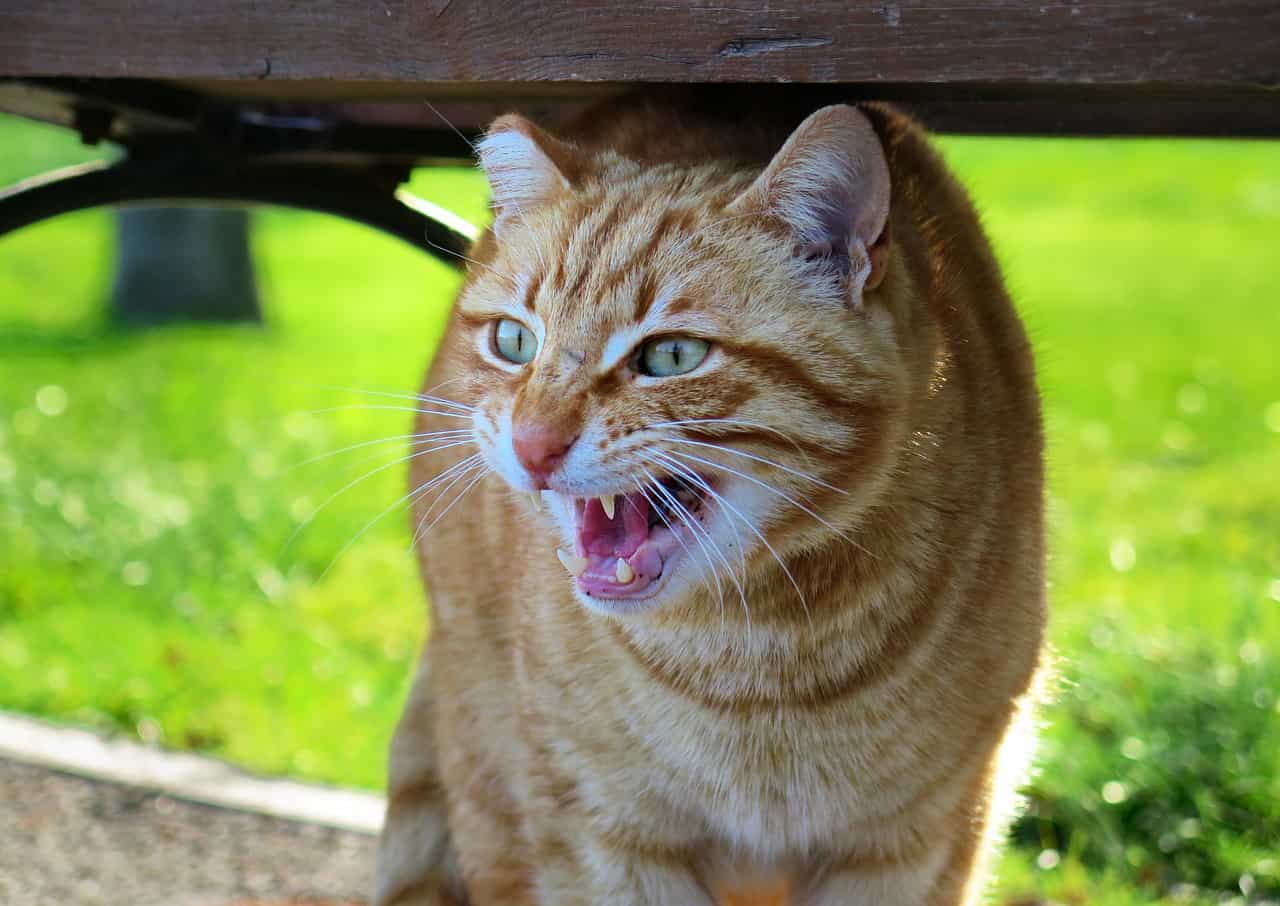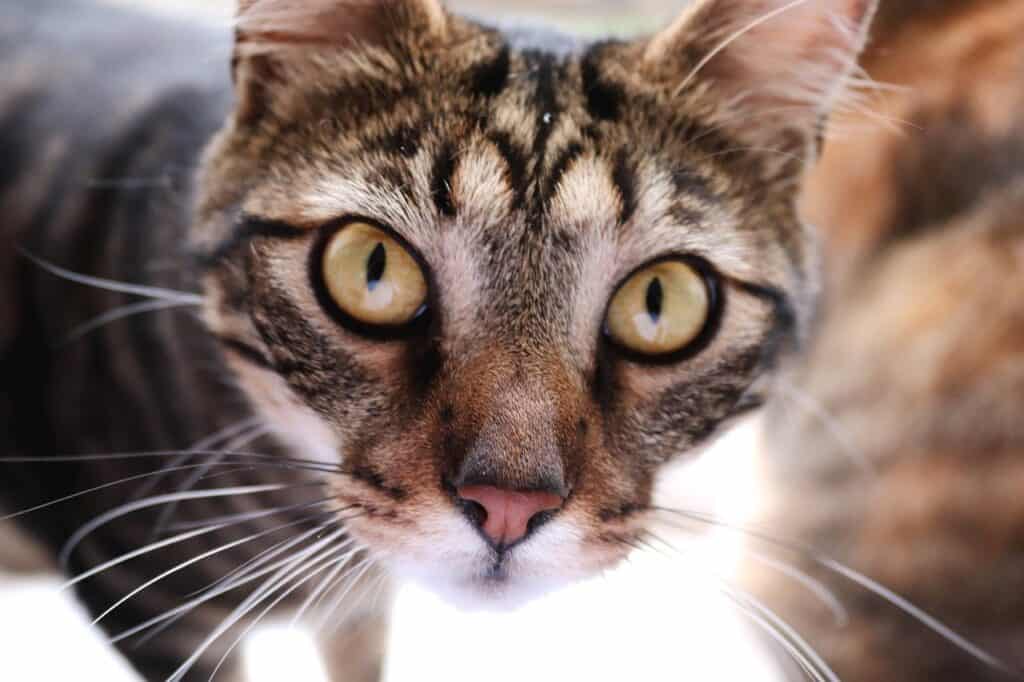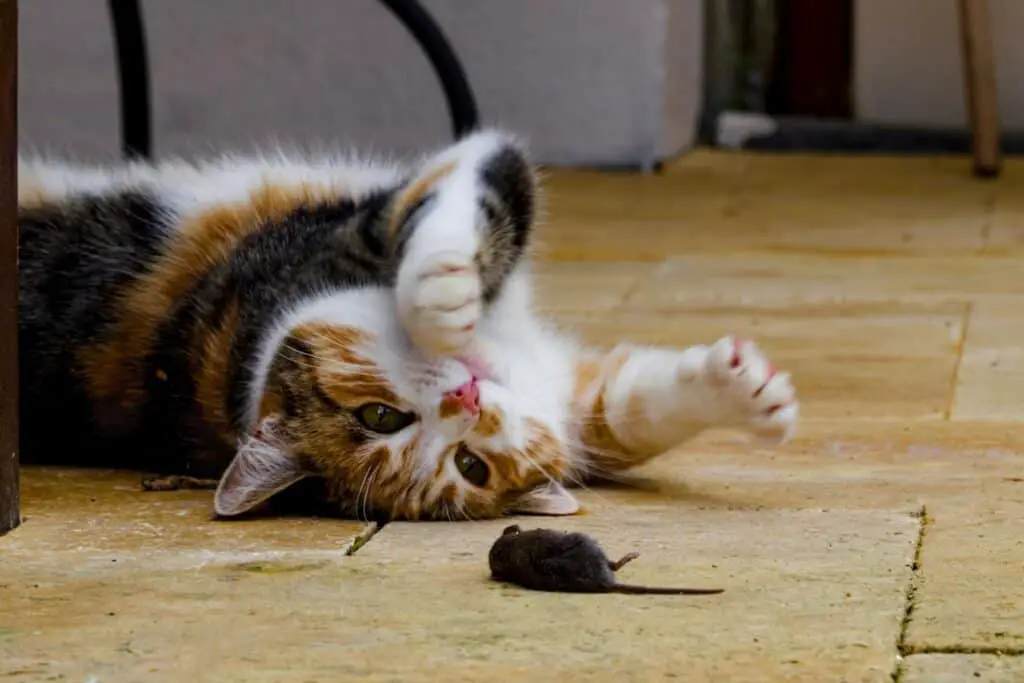Even the most dedicated cat-parents aren’t always saints. Sometimes we get angry at our cats, we say or do something we didn’t mean, or we had a bad day and mistreat our favorite pets.
Naturally, it makes sense to apologize to your cat for any wrongdoings. But, does your cat understand an apology and, most importantly, can cats forgive your abuse? Do they hold a grudge?
Generally, cats will forgive abuse. Two major factors to consider are the severity of the wrongdoing and the frequency. For minor transgressions, like stepping on its tail, cats will forgive you more quickly than when it suffers constant and repeated abuse or bullying. It often comes down to a cat’s personality and prior experiences.
Going through physical or emotional abuse can affect a cat’s wellbeing. Those little eyes can hide several untold emotions.
But can cats forgive abuse? And how do you take care of an abused cat? Keep reading to find out.
What is cat abuse?
This is pretty straightforward.
Generally, cat abuse is any action towards cats that are not in a cat’s best interests and are considered hurtful, both physically or mentally. We roughly distinguish two categories of animal abuse; neglect and physical abuse.
By negligence, we mean any action that results in not tending to your pet’s basic needs, such as not feeding your cat (regularly), not taking care of their health, and visiting a vet when necessary.
Additionally, just like humans and any other animal, cats need love, affection, and entertainment. This will significantly benefit their mental health and build a harmonious relationship between you and your cat.
Finally, cats need a comfortable and warm environment to live peacefully and stay healthy.
Physical abuse is often more visible as it’s clear that a cat is in physical pain or otherwise in bad shape due to the abuse.
On the other hand, neglect and mental abuse can be just as damaging for a cat’s health and, if prolonged, can make a cat physically sick and lead to issues like lack of grooming and malnutrition, which, in turn, can cause illnesses and physical problems.
Subjecting your cat, any animal, to any form of abuse is not OK under any circumstance.
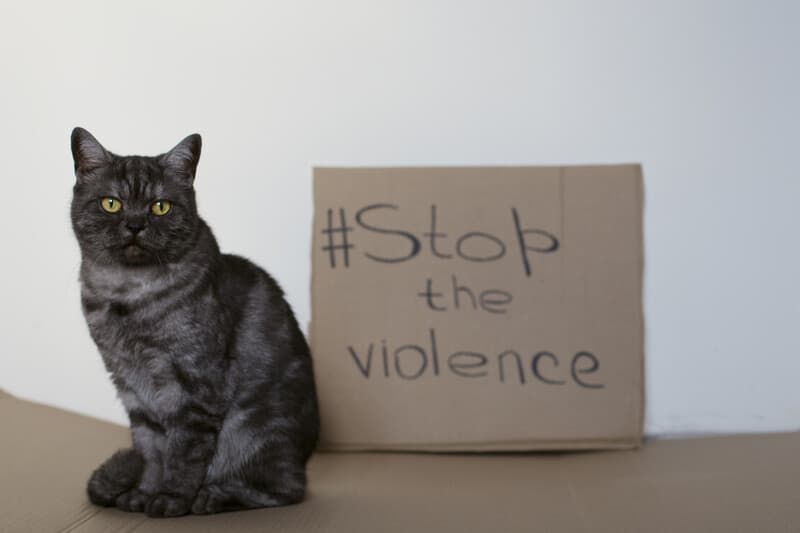
The difference between accidents and bullying
Whether or not cats forgive abuse depends on a couple of factors. These are truly not that different from how we, as humans, would respond to any wrongdoings or a bad experience.
Cats know the difference between an accident and intentional bullying.
Often, cats will easily forgive minor missteps such as accidentally stepping on their tail or knocking over their drinking bowl. Your cat may be annoyed, but they understand you didn’t do it on purpose.
When faced with repeated bullying or physical abuse, cats will not easily forget and forgive.
Examples of repeated and intentional abuse are any form of physical abuse, which includes giving physical punishment after an undesirable behavior, not providing a safe place to sleep, or any form of malnutrition.
However, mental abuse such as neglect, ignoring their presence, not answering their requests for attention, or treating them differently compared to other pets in your household can be considered forms of abuse.
Any form of abuse will leave emotional or mental scars and could traumatize your cat. Once that happens, there is usually no turning back, and those events will stay in a cat’s memory for a long time, if not all their life.
Signs of abuse in cats
So, how to recognize abuse in cats?
If a cat has been physically abused, the signs of trauma are often clear as the cat might be hurting or, in extreme cases, may have visible wounds.
On the other hand, we cat-parents know that cats are masters in hiding physical pain. They have learned to hide it in the wild because they consider it a sign of weakness that will single them out as easy prey.
However, there are some tell-tale signs that a traumatized cat will show when approached by a human.
Below are some typical warning signs to look out for. These generally exhibit symptoms of long-standing abuse and ongoing trauma.
- Changes in appearance (fur loss, dull texture, and generally poor grooming habits)
- Avoiding human contact and interaction
- The cat tries to bite or scratch you when attempting to touch or pet it
- Open wounds or fractures
- Too skinny
- Overly aggressive or submissive
- Chronic Anxiety
More information on how to spot abuse can be found here.
Do cats remember their abuser?
Cats have excellent long-term memory, and they’re especially good at storing any painful memory. This helps them thrive as hunters and to avoid predators.
So if they have a traumatic experience with someone, they’re going to remember this person, the fear, the anger, and the painful experience, as part of their self-preservation mechanism.
As a result of their strong ‘associative memory‘, flashbacks of any prior abuse can be triggered by scents, objects, sounds, or anything related to a previous negative experience. This negative memory association will help them avoid any person who has repeatedly mistreated them in the past.
It’s important to realize that we’re explicitly talking about repeated or long-term abuse. Your cat won’t start avoiding you if you merely stepped on its tail.
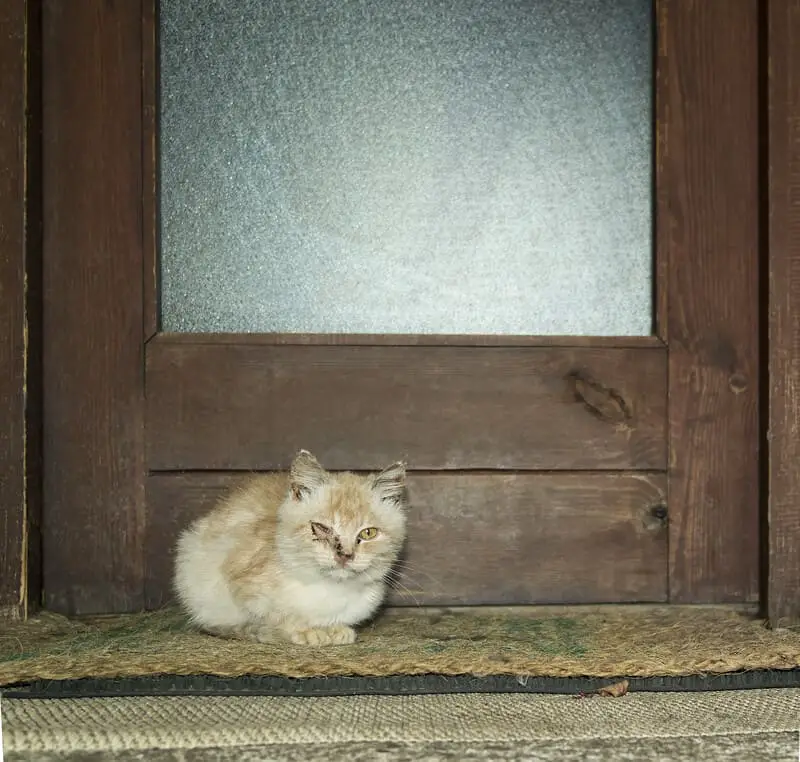
Cats are picky about who they trust
Even without any negative experiences, cats are picky about the people they like. They keep their distance until they’ve had some time to observe you, your intentions, and your behavior.
After gaining a cat’s trust, repeated abuse can sever that bond over time.
When that happens, the circumstances of the abuse are etched into a cat’s mind, and it’s tough, if not impossible, to win back their trust and repair the relationship between you.
How to make up after an incident?
Be thankful if you’re in a cat’s inner circle. Once bonded, Human-Feline relationships are strong, and we’re not suggesting that any rough will break that bond.
Most cats aren’t so fragile that accidents or minor missteps will leave a permanent mark, but when an accident happens, or you’ve mistreated your cat, do take some time to make up and give some extra love.
Even in the best relationships, fights happen. After an incident, it’s best to give your cat some space. When your cat approaches you after a while, it’s usually a sign that things are OK and a great opportunity for you to seek your cat’s forgiveness.
Making up with your cat after a negative experience can be done by spending some quality time, giving extra cuddles or engaging in playtime, or making a peace offer in the form of a treat.
Apart from your actions
Need some help on how to apologize to your cat? Have a look for some great tips in our article right here.
Do cats seek revenge after wrongdoings?
Unlike humans, cats don’t hold grudges, nor are they out for revenge. At the time of any wrongdoing, cats may show aggressive behavior like hissing or swatting, but they don’t plot against you after the fact. Their emotional response is more of a survival instinct, driven by fear and anxiety, rather than a way to “get even” with you after a misstep.
More about why cats may or may not hold grudges against their owners or about how a cat’s behavior can change after negative experiences, have a look at our article “Why your cat may hold a grudge against you”.

